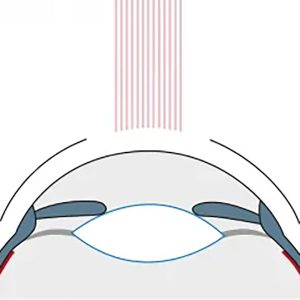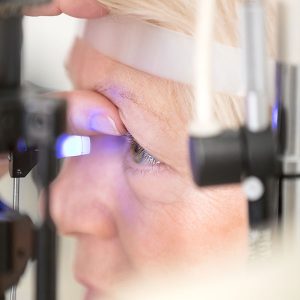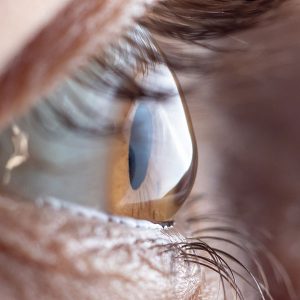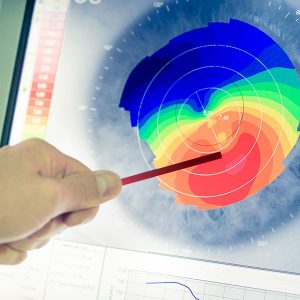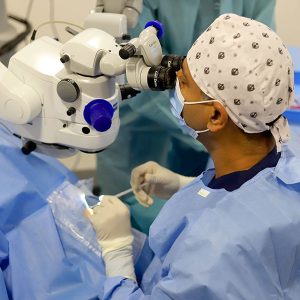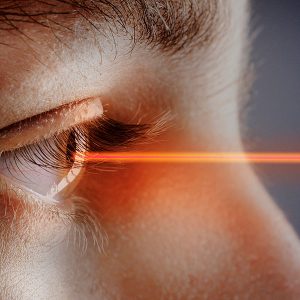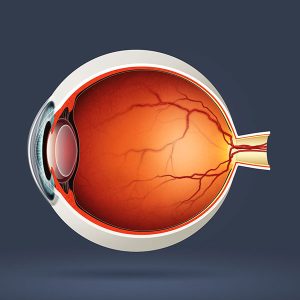Laser vision correction
Ayrshire Eye Clinic
Photorefactive Keratectomy (PRK)
Photorefactive Keratectomy (PRK) is a laser vision correction procedure during which an Excimer laser is used to reshape the cornea thus getting rid of the refractive error (prescription glasses) of the eye.
TransPRK (Transepithelial PhotoRefractive Keratectomy) is an Advanced Surface Ablation (ASA) procedure, meaning that there is no cutting to create a flap in order to allow the laser to access and reshape the cornea. Instead the laser simply ablates (surgically removes) the outermost layer of cells on the surface of the eye to reach the cornea.
How is it different from ASA?
What makes TransPRK different from other ASA procedures such as traditional PRK and Epi-LASIK, is that there is nothing actually physically touching your eye (besides the clamp to gently keep your eye open) in order to remove the surface cells.
How does Trans PRK work?
In No-Touch-Trans-PRK, the corneal epithelium is first removed using modern laser technology with the excimer laser. Unlike PRK or LASEK, this new method does not use a scraper or the mechanical method.
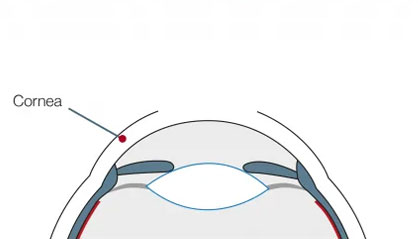
In the next step, the excimer laser is used to ablate the cornea by a certain thickness – based on the values measured during the preliminary examination. This changes the refractive power of the cornea in such a way that incident light rays now strike the retina correctly bundled thus creating a sharp visual image in the postoperative period.
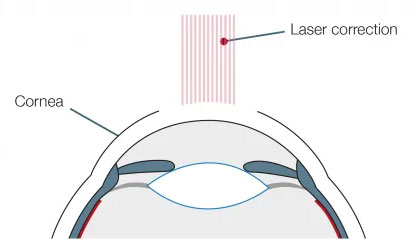
At the end of the laser treatment a therapeutic contact lens is placed on the eye. The contact lens protects the eye for the first 3 to 5 days, until the epithelium has completely healed.
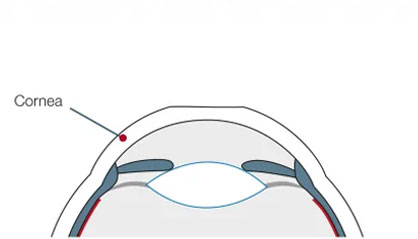
Ayrshire Eye Clinic's Laser System
At Ayrshire Eye Clinic we use the most advanced laser system (Amaris 1050 RS from Schwind, Germany) to treat your eyes. In fact we are the only centre in Scotland to offer this advanced technology for laser vision correction. The entire patient journey from initial screening, to treatment to follow up is led by our Medical Director Prof. Sathish Srinivasan who is internationally recognised refractive surgeon.



